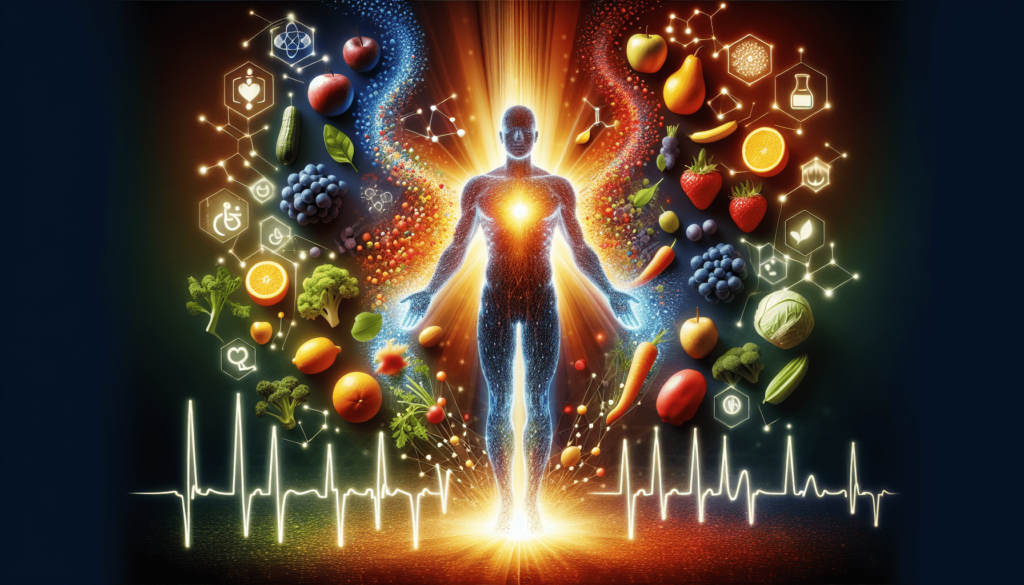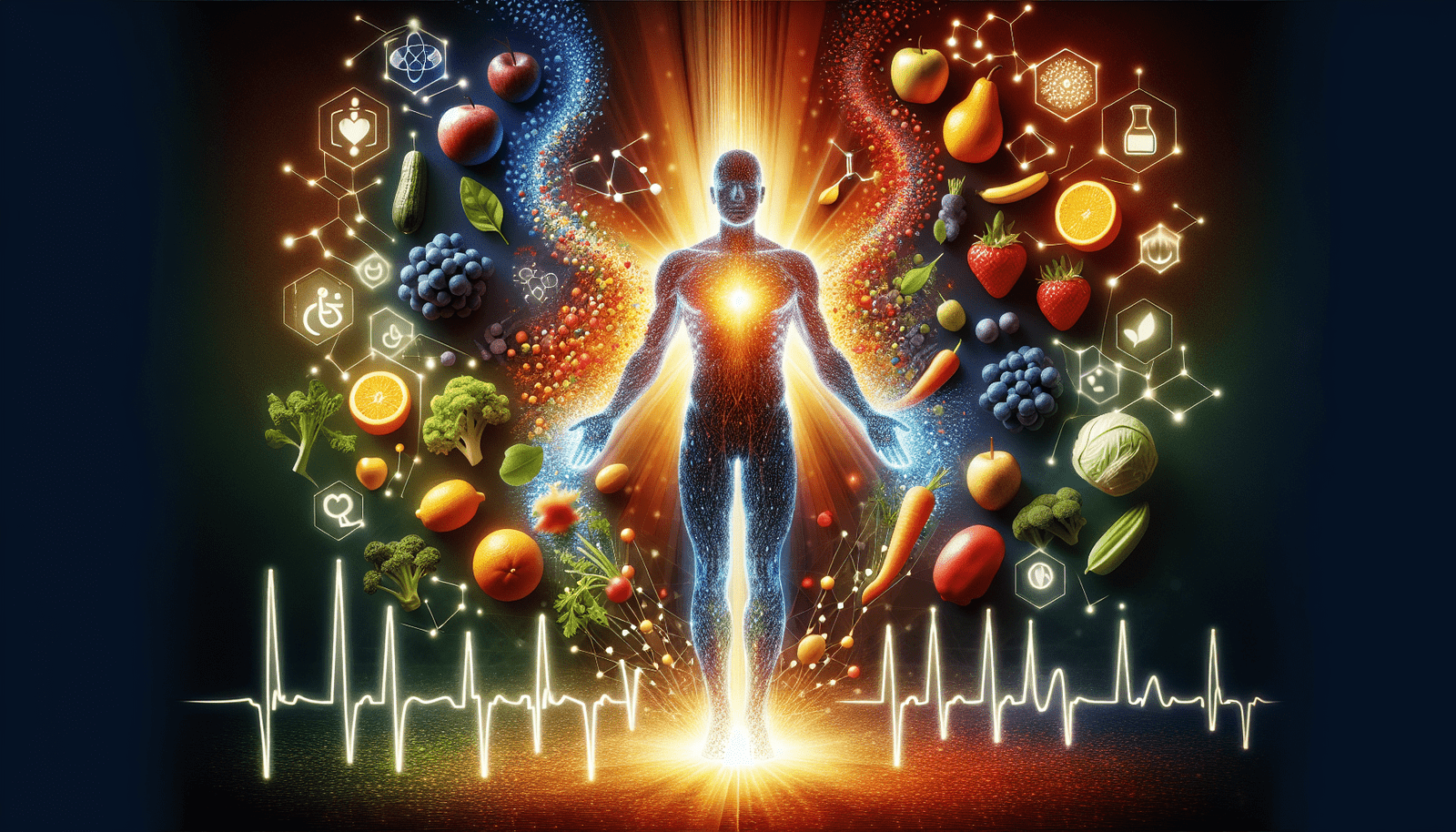You’re in for an intriguing exploration into the world of nutrient absorption! In this article, we’ll uncover the X-factors that play a vital role in enhancing the absorption of nutrients in your body. Dive deep into the fascinating mechanisms behind this process and discover the remarkable factors that can amplify your body’s ability to absorb essential nutrients. So, get ready to unlock the secrets and unleash the potential of optimal nutrient absorption for a healthier and more vibrant you!
Proper Digestive Function
Stomach acid production
Proper stomach acid production is essential for optimal digestive function. It plays a crucial role in breaking down food and facilitating the absorption of nutrients. Stomach acid, also known as hydrochloric acid, helps to activate digestive enzymes, particularly pepsin, which is responsible for the breakdown of proteins. Adequate levels of stomach acid also help in killing off harmful bacteria and other pathogens present in the food we consume.
Enzyme production
Digestive enzymes are necessary for the breakdown of carbohydrates, proteins, and fats into smaller molecules that the body can absorb and use. The pancreas produces various enzymes, including amylase, protease, and lipase, which are released into the small intestine to aid in digestion. Insufficient enzyme production can result in poor digestion and nutrient malabsorption.
Intestinal health
The health of your intestines is vital for proper nutrient absorption. The small intestine is responsible for absorbing most of the nutrients from the food you consume. If the lining of your intestines is damaged or inflamed, it can impair the absorption process. Conditions like leaky gut syndrome or inflammatory bowel disease can lead to malabsorption issues. Maintaining a healthy gut lining, with a diverse population of beneficial bacteria, is crucial for optimal nutrient absorption.
Healthy Gut Microbiome
Probiotics
Probiotics are live bacteria and yeasts that are beneficial for your digestive system. These friendly bacteria help maintain balance in the gut microbiome and support overall digestive health. They aid in the breakdown of nutrients, produce vitamins, and strengthen the intestinal barrier, preventing the invasion of harmful pathogens. Consuming probiotic-rich foods such as yogurt, kefir, sauerkraut, and kimchi, or taking probiotic supplements, can help foster a healthy gut microbiome.
Prebiotics
Prebiotics are a type of dietary fiber that nourishes the beneficial bacteria in your gut. They act as food for probiotics and help them thrive in the digestive system. Foods high in prebiotics include garlic, onions, bananas, asparagus, and whole grains. By consuming prebiotic-rich foods, you can support the growth of beneficial bacteria in your gut, thus enhancing nutrient absorption.
Fiber-rich diet
A regular intake of dietary fiber is crucial for maintaining a healthy gut microbiome and promoting proper digestion. Fiber adds bulk to the stool, prevents constipation, and supports regular bowel movements. It also acts as a prebiotic, feeding the beneficial bacteria in the gut. Consuming a variety of fiber-rich foods, such as fruits, vegetables, whole grains, and legumes, can help promote a healthy gut and improve nutrient absorption.

Age and Health Conditions
Age-related changes
As we age, our digestive system undergoes certain changes that can impact nutrient absorption. These changes include a decrease in stomach acid production, a decrease in enzyme production, and a decline in the overall health of the intestines. Elderly individuals may have a higher risk of nutrient deficiencies and malabsorption. It is important for older adults to pay attention to their diet and consider supplemental support to ensure proper nutrient absorption.
Digestive disorders
Digestive disorders, such as irritable bowel syndrome (IBS), celiac disease, Crohn’s disease, and ulcerative colitis, can significantly affect nutrient absorption. Inflammation, damage to the intestinal lining, and impaired digestive enzyme production are common issues associated with these conditions. Individuals with digestive disorders may need specialized dietary modifications and may require supplements to overcome nutrient deficiencies and optimize absorption.
Nutrient Synergies
Vitamin and mineral interactions
Certain vitamins and minerals work together synergistically, enhancing each other’s absorption and utilization in the body. For example, vitamin D is essential for proper calcium absorption, and vitamin C aids in the absorption of iron. Including a variety of nutrient-dense foods in your diet can ensure you receive the necessary combinations of vitamins and minerals to support optimal absorption and overall health.
Food combinations
Combining certain foods can enhance nutrient absorption. For instance, pairing foods rich in vitamin C, such as citrus fruits, with iron-rich foods like spinach or lentils can increase the absorption of iron. Adding a source of healthy fats to meals can also improve the absorption of fat-soluble vitamins, such as vitamins A, D, E, and K. Paying attention to food combinations can help optimize nutrient absorption and ensure you’re getting the most out of your meals.

Bioavailability of Nutrients
Forms of nutrients
The bioavailability of nutrients refers to how well your body can absorb and utilize them. Different forms of nutrients affect their absorption rate. For example, iron from animal sources is better absorbed than iron from plant sources. Some nutrients, like vitamin D, exist in different forms, with varying absorption rates. Understanding the bioavailability of nutrients can help you make informed dietary choices to maximize their absorption.
Food processing and cooking methods
Food processing and cooking methods can impact nutrient availability. Certain nutrients are more sensitive to heat, light, or air exposure, causing them to degrade during cooking or processing. Steaming or lightly cooking vegetables can help retain more of their nutrient content compared to boiling or frying. Choosing minimally processed foods and using cooking methods that preserve nutrient integrity can help improve nutrient absorption.
Phytates and oxalates
Phytates and oxalates are antinutrients found in some plant foods that can interfere with nutrient absorption. Phytates, present in legumes and whole grains, can bind to minerals like iron, zinc, and calcium, reducing their absorption. Oxalates, found in foods like spinach and beet greens, can hinder the absorption of calcium and iron. Soaking, fermenting, or cooking foods that contain phytates and oxalates can help reduce their effects on nutrient absorption.
Individual Nutrient Needs
Genetic factors
Genetic factors can influence how your body absorbs and utilizes nutrients. Certain genetic variations can affect your body’s ability to metabolize specific nutrients or require higher levels of certain vitamins and minerals. Genetic testing can provide insight into personalized nutrient needs and guide dietary and supplementation considerations to optimize absorption.
Pregnancy and lactation
During pregnancy and lactation, nutrient needs increase to support the growth and development of the baby. Adequate absorption of essential nutrients is crucial during these periods. Nutrient deficiencies can not only affect the mother’s health but also impact the baby’s development. Prenatal supplements and a well-balanced diet are essential for meeting increased nutrient demands and ensuring optimal absorption.
Nutrient deficiencies
Nutrient deficiencies can hinder proper absorption and utilization of other nutrients. For example, iron deficiency can impair the absorption of other minerals like zinc and copper. It is essential to address any existing nutrient deficiencies through dietary modifications or targeted supplementation to optimize nutrient absorption and prevent further deficiencies.
Medication and Supplements
Drug-nutrient interactions
Certain medications can interfere with nutrient absorption, metabolism, or utilization. For example, acid-suppressing medications can reduce stomach acid production, leading to impaired absorption of certain nutrients like calcium, iron, and vitamin B12. It is important to consult with a healthcare professional to understand potential drug-nutrient interactions and make appropriate adjustments to your diet or supplementation regimen.
Supplement quality and absorption
Not all supplements are created equal in terms of quality and absorption. Choosing supplements from reputable brands that undergo rigorous testing for potency and purity ensures that you are getting a product that is easily absorbed by your body. Opting for supplements in highly bioavailable forms, such as chelated minerals or activated forms of vitamins, can enhance their absorption and effectiveness.
Physical Activity
Exercise and nutrient absorption
Regular physical activity can enhance nutrient absorption by increasing blood circulation and promoting optimal digestive function. Exercise helps to stimulate the intestines, thus aiding in the movement of food and waste through the digestive system. It also promotes optimal blood flow to the intestines, which can enhance nutrient uptake. Including regular exercise as part of a healthy lifestyle can support optimal nutrient absorption.
Muscle mass and metabolism
Having a healthy muscle mass can support nutrient absorption and utilization. Muscle tissue is metabolically active and requires a constant supply of nutrients for its functioning. Adequate muscle mass helps to create a favorable metabolic environment that promotes nutrient absorption and utilization. Incorporating strength training exercises into your fitness routine can help build and maintain muscle mass, enhancing overall nutrient absorption.
Stress and Mental Health
Stress hormones and digestion
Stress can disrupt the digestive process and impact nutrient absorption. When you experience stress, your body releases stress hormones like cortisol, which can impair stomach acid production and slow down digestion. Chronic stress may lead to conditions like irritable bowel syndrome, causing further limitations in nutrient absorption. Managing stress through relaxation techniques, exercise, and proper self-care can support optimal digestion and nutrient absorption.
Emotional well-being and nutrient absorption
Your emotional well-being can influence your appetite, food choices, and overall nutrient absorption. Emotional eating, which often involves consuming unhealthy, processed foods, can negatively affect digestive function and nutrient absorption. Practicing mindful eating, focusing on nourishing whole foods, and addressing emotional health through therapy or stress management techniques can help optimize nutrient absorption and overall well-being.
Food Intolerances and Allergies
Impact on digestive function
Food intolerances and allergies can disrupt digestive function and hinder nutrient absorption. Conditions like lactose intolerance or gluten sensitivity can lead to digestive symptoms, inflammation, and damage to the intestinal lining. This affects the absorption of various nutrients. Identifying and eliminating trigger foods, and ensuring alternative nutrient sources, can help manage food intolerances and allergies while promoting optimal nutrient absorption.
Alternative nutrient sources
When faced with food intolerances or allergies, it is crucial to find suitable alternative nutrient sources. For example, if you are lactose intolerant, you can opt for lactose-free dairy products or choose plant-based options rich in calcium, such as fortified non-dairy milk or leafy greens. Working with a registered dietitian can help you identify suitable alternatives that meet your nutrient needs while managing your specific dietary restrictions or allergies.
In conclusion, several factors influence nutrient absorption. Maintaining proper digestive function, nurturing a healthy gut microbiome, considering individual nutrient needs, managing stress levels, and making mindful food choices all contribute to optimal nutrient absorption. By understanding and implementing these x-factors in nutrient absorption, you can pave the way for a healthier, nutrient-rich diet and overall well-being.

